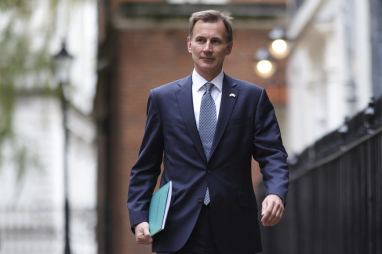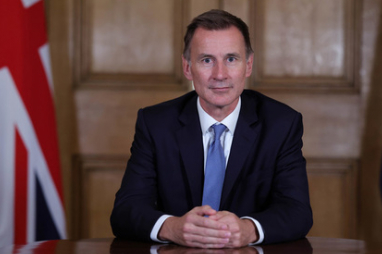- Сникерсы кроссовки на высокой платформе с танкеткой чёрные деми — цена 1199 грн в каталоге Сникеры ✓ Купить женские вещи по доступной цене на Шафе , Украина #107726991
- Latest Nike Air Max 97 Trainer Releases & Next Drops , Nike Air Jordan Retro I High OG Black Metallic Gold 2020 , IetpShops
- adidas velcro sneaker for kids shoes boys size 1
- Nike TN Air Max Plus , nike air force 1 shadow air max dia , IetpShops , Women's Nike TN
- Air MUS12 Jordan 3LAB5 Gamma Blue Metallic Silver - MUS12 Jordan Air 200e Men Dc9836-200 - 200 - MUS12 Jordan Air 200e Men Dc9836
- air jordan xxxv cq4227 004
- air force 1 shadow
- all star air jordan 1 gotta shine
- Air Jordan 3 Rust Pink CK9246 600
- nike air force 1 low white gold dc2181 100 release date info
- Home
- News and analysis
- Info hubs
- Events
- Video
- Case Studies
- About us
- Magazine
- Advertising
Produced for the industry by the Association for Consultancy and Engineering
News
Civils contractors call for government to deliver on full expensing

Civils contractors have welcomed the chancellor’s announcement to extend full expensing to assets for leasing - but said that it must follow through on the policy to see results.
In yesterday’s Spring Budget chancellor Jeremy Hunt said government will shortly publish draft legislation for full expensing to apply to leased assets – but added it was a change he intended to bring in “as soon as it is affordable”.
Full expensing allows companies to write off the cost of investment in one go. Under full expensing, for every pound a company invests, their taxes are cut by up to 25p.
Director of operations for the Civil Engineering Contractors Association (CECA) Marie-Claude Hemming said: “Our sector is being asked to decarbonise its plant fleet at a time when profit margins are under strain at all levels of industry.
“Moves towards enabling the full expensing of leased construction plant has the potential to unlock vital funds to enable the roll-out of low-carbon machinery, as well as making it more affordable for the hirers that many contractors use to upgrade their fleets.
“We welcome the UK Government’s stated intention of publishing draft legislation on this issue as a move that it is taking seriously the need to decarbonise UK construction, while enabling businesses across the supply chain to remain profitable.
“At the same time, the condition that these changes will only be implemented when fiscal conditions allow potentially implies unnecessary delay to the roll-out of this vital reform.
“CECA has long campaigned for this change as a means of unlocking necessary investment to help decarbonise our industry.
“We look forward to working with government, our members and industry partners, to ensure the delivery of this vital policy within a time-scale that matches the urgency of reaching net zero.”
Meanwhile industry leaders have continued to give their verdict on the Spring Budget.
James Corrigan, managing director of UK infrastructure at Turner & Townsend, said: “The Spring Budget has arrived in the context of limited fiscal headroom, and against this backdrop, the chancellor’s reserved approach to new investment in areas such as infrastructure comes as little surprise.
“Major programmes in the UK would benefit from a similar approach to that which government is taking in areas like life sciences, advanced manufacture, and nuclear power – where clear ambitions are set out and stuck to, and the government can play more of an enabling role in stimulating private investment, rather than relying on funding from public sources.
“Even when the pipeline of major infrastructure projects is limited, we cannot underestimate the underlying need for investment in maintaining and renewing existing networks – from rail and road to water and electricity.
“This will require government to work more closely with the sector to understand the reassurance and commitment that we need.”
Darren Caplan, Railway Industry Association chief executive, said: “There are some positives related to rail in the Spring Budget. It is good to see aspirations for faster completion of East West Rail, news of additional East Coast Mainline services, and more information on the Network North schemes.
“However, overall the Railway Industry Association and our members will be disappointed that an opportunity has been missed to leverage rail to drive economic growth more widely – it is worth remembering that for every pound spent on rail, £2.50 is generated in the wider economy.
“Rail suppliers will be disappointed the chancellor has failed to provide certainty or clarity on the outlook for network enhancements, and there is still a black hole on rail infrastructure pending following the scrapping of HS2 Phase 2 – the Network North schemes, whilst welcomed by rail suppliers when they go ahead, do not amount to the rail spending lost and those mentioned are subject to business cases, and the HS2 Euston proposals are far from certain.
“So we look forward to seeing more detailed plans from the government in due course, whether related to infrastructure or trains, so that the railway industry can have the certainty it needs to get on with building world-class rail in the UK, whilst providing value for money for both the customer and the taxpayer.”
Simon Light, EMEA CEO at professional services firm GHD, said: “Whilst I welcome the recent progress in reform across road and rail, it is clear that investing in transport and infrastructure is not a top priority for the current government.
“Collaborating with both private and government stakeholders to deliver transport solutions has made us aware of the challenging years ahead for the industry, and we know the immense pressure facing public transport which will only grow without significant investment and change.
“The chancellor has rightly indicated that future public service investment decisions will be focussed on improving productivity.
“However, he has failed to build on the measures laid out in the Autumn Statement, and the chancellor’s silence on overhauling the UK planning system and cut project delivery times is a cause for concern. This is consistently flagged as a barrier to investment, progress and the success in the programmes and projects needed to improve the infrastructure across the country.
“It is equally concerning that we’ve heard no concrete investment in measures to improve our rail industry. This week we’ve seen another 5% hike in national rail fares, yet the chancellor has opted to freeze fuel duty for the fourteenth year running, instead of intervening and addressing the challenges we face across the transport market.
“Compounded by the capital spending freeze, any guarantee of substantial new spending commitments in transport infrastructure have been effectively eradicated, leaving the industry in a difficult position.
"Public transport investment is vital to deliver economic growth, net zero and levelling up. Without a firm commitment, significant roadblocks remain for the UK to make urgently needed improvements in infrastructure and embed climate resilience across the entire transport network.
“We know private sector capital is available, but it is currently being held back. What we need now is certainty and reassurances that these projects are backed up by policy and public spending. Without long-term proposals, the industry risks stagnation for years to come, casting doubt on the future of transport delivery.”


